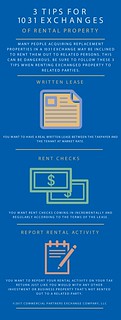Investing in real estate can be a lucrative venture, but it often comes with challenges such as high upfront costs and managing properties. However, there is a strategy that can help investors overcome these obstacles – the 1031 exchange.
This powerful tool allows investors to defer capital gains taxes by reinvesting the proceeds from the sale of one property into another. In this article, we will delve into how the 1031 exchange works and explore its potential for investing in real estate funds.
What is a 1031 Exchange?
A 1031 exchange, also known as a like-kind exchange or tax-deferred exchange, is a provision in the US Internal Revenue Code. It allows investors to defer capital gains taxes by selling an investment property and using the proceeds to acquire another property of equal or greater value.
This enables investors to roll over their investment without incurring immediate tax liabilities. By deferring taxes, investors can reinvest their profits and build wealth through real estate investments while preserving cash flow and financial flexibility.
How does it work?
A 1031 exchange allows investors to sell a property and reinvest the proceeds into another property, deferring capital gains taxes. To qualify, both the sold (relinquished) and acquired (replacement) properties must be held for investment or business purposes.
Within 45 days of selling, potential replacement properties must be identified, with the acquisition completed within 180 days. The exchange applies only to like-kind properties, such as swapping residential rentals or commercial properties.
This strategy encourages real estate investment by deferring taxes and providing opportunities for portfolio growth.
Why is it beneficial for investors?
A 1031 exchange offers significant benefits for investors. The primary advantage is tax deferral, allowing them to avoid immediate capital gains taxes on the sale of an investment property. This preserves more capital for reinvestment in potentially higher-yielding assets, leading to significant wealth accumulation over time.
Additionally, the ability to continuously defer taxes through subsequent exchanges enables investors to compound their returns and grow their real estate portfolios faster. This strategy is particularly advantageous for those looking to build long-term wealth through real estate investments.
In summary, a 1031 exchange provides tax advantages, flexibility, and the opportunity to diversify investments while increasing purchasing power. It is an attractive option for investors seeking optimized returns and minimized tax obligations in the real estate market.
What are real estate funds?
Real estate funds pool money from multiple investors to invest in a diversified portfolio of properties or real estate-related assets. These funds can have different structures like mutual funds, ETFs, or private partnerships.
By investing in a fund, individuals gain access to a professionally managed and diversified portfolio, including various property types across different locations. This offers risk mitigation through diversification and flexibility compared to direct property ownership.
Real estate funds provide expertise, easy entry and exit, and exposure to different segments within the market.
Benefits of Investing in Real Estate Funds
Investing in real estate funds offers several advantages for individuals looking to participate in the real estate market without the complexities of direct property ownership. These funds provide instant diversification, spreading investments across multiple properties or asset types and reducing risk.
Managed by experienced professionals, they offer expertise and informed investment decisions. Additionally, real estate funds have significant buying power, enabling them to pursue larger-scale opportunities not feasible for individual investors. Moreover, many funds provide regular income distributions, offering a steady stream of passive income.
Overall, investing in real estate funds provides access to diversified portfolios, professional management, larger investment opportunities, and potential income generation.
[lyte id=’z8fPWvq6Wok’]




